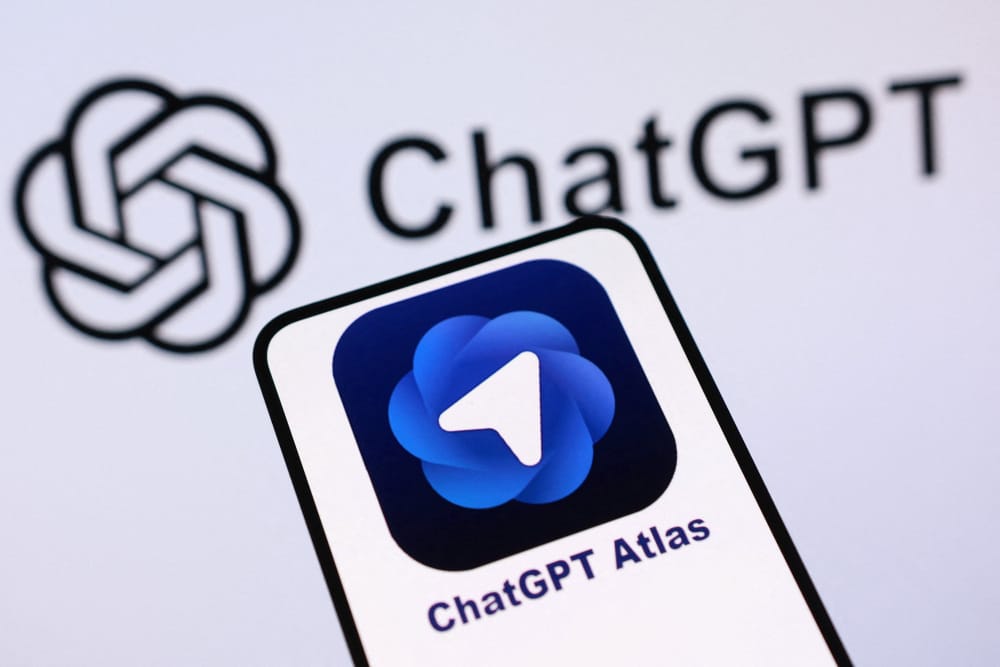Everyone is talking about Atlas, the OpenAI browser that integrates ChatGPT everywhere, all the time. On paper, it's revolution. In reality? I tested it for 10 minutes before going back to Chrome. Feedback on this promising innovation without any fuss about this promising innovation... but not yet a game-changer.
Atlas: the promise of omnipresent AI
ChatGPT integrated anywhere, anytime
The Atlas pitch is appealing: No more going back and forth between your browser and ChatGPT. AI is becoming native to all your web activities.
The announced features:
- Summarize an article in one click
- Automatically reply to your emails
- Compare prices across multiple sites
- Fill out forms automatically
- Do your shopping online
- Book your hotel by conversation
On paper, this is exactly what we expect from an integrated AI: present when you need it, invisible when it's not the case.
The competitor Comet (Perplexity) in the same vein
Atlas is not alone in this field. Comet, Perplexity's browser, offers a similar approach: search AI integrated natively into browsing.
Love Perplexity. I use it daily. And yet, Comet remains installed... and has never been reopened since day one.
This contradiction reveals something important about our relationship with tools.
My Atlas test: promising but not decisive
What I tested in 10 minutes
Writing an email: Convenient not having to open ChatGPT separately. The context is maintained, the generation is fast.
Analysis of a website: Relevant summary, extraction of key functional information.
Article summary: Effective, real time savings on long content.
My immediate verdict? It's super practical. Really. But not yet game-changer for my daily use.
Why did I go back to Chrome
After 10 minutes of trying, I reopened Chrome. Not because Atlas is bad, but becauseHe is asking me to change my habits that is too important for a benefit that is not yet obvious enough..
The concrete reasons:
My Chrome extensions: Years of accumulation of tools that I use daily. Recreating them elsewhere = huge friction.
My passwords and favorites: My entire work ecosystem is in Chrome.
My browsing habits: Keyboard shortcuts, organized tabs, well-honed workflows.
The cost of change exceeds (for now) the perceived benefit.
The real blockage: the question of data
Entrust OpenAI even more
Beyond habits, there is a deeper question: How far am I ready to deliver my data?
With Atlas, OpenAI would have access to:
- My full browsing history
- My web searches
- My emails (to write/reply)
- My online purchases
- My bookings
- All my web interactions
This is a considerably higher level of access than the occasional use of ChatGPT.
The paradox that I don't understand myself
The contradiction is total: I already spend my days telling my life to ChatGPT. Projects, ideas, thoughts, content... OpenAI already knows a lot.
So why the reluctance to take the plunge with Atlas?
Perhaps because voluntary storytelling is different from passively delivering. The use of ChatGPT remains conscious and controlled. Atlas would be more... omnipresent.
Google vs OpenAI: a false debate?
The classic argument: “Anyway, Google already knows everything about you.”
It is true. And wrong at the same time.
True: Google Chrome collects a lot of data on our uses.
Wrong: Adding a new actor doesn't make the situation better. Two companies that know everything - an improvement.
The real question: are we ready to fragment our personal data even more?
What I would have really liked
Plugins instead of a new browser
My real expectation: be able to stay on Chrome and simply activate Atlas and Comet plugins.
Having AI always at hand, without changing environments, without losing my habits, without migrating my entire ecosystem.
In my opinion, the ideal approach is:
- Highly integrated Chrome/Firefox extension
- Contextual activation (appears when relevant)
- No browser changes required
- User choice on shared data
This approach would have significantly reduced adoption friction.
OpenAI's strategy: control vs adoption
But obviously, OpenAI has its reasons for creating a complete browser rather than a simple extension.
Their advantages:
- Full control of the user experience
- Deep integration impossible in extension
- Valuable navigation data to train their models
- Positioning against Google Chrome
The question: does this strategy promote mass adoption or does it slow it down?
Early adopters are already testing thoroughly
Feedback from beta testers
While I'm waiting cautiously, some are diving. Mathieu Crucq, CEO of Brainsonic and always on the ball on AI news, had fun comparing a Leclerc vs Auchan basket in conversation with Atlas (to see here).
These pioneering tests reveal the real use cases and the real limits. They allow latecomers (like me) to better assess when to take the plunge.
What we learn from the first feedback:
- The features work well overall
- The integration is smooth on supported sites
- Some bugs and limitations remain
- Adoption requires a real change in habits
Early Adopter vs Late Majority Syndrome
This situation is a perfect illustration of the technological adoption curve:
The innovators (2-3%) : Install Atlas as soon as it is released, test everything, share their feedback.
Early adopters (13-14%) : Wait a few days, read the first feedback, test seriously.
Me and probably you (early majority, 34%) : We observe, we wait for stabilization, we evaluate the benefit/friction ratio.
Late adopters and laggards (50%) : Will change when it becomes the norm... or never.
No category is better. Each has its logic.
The real questions to ask yourself before adopting
Honestly assess your usage
Do you really use ChatGPT extensively on a daily basis?If not, Atlas won't be able to do much. If yes, the gain could be significant.
Are you constantly going back and forth in browser ↔ ChatGPT?This is the main problem that Atlas solves. If you don't experience it as a friction, the benefit will be limited.
Are you ready to rebuild your work environment?Extensions, favorites, passwords, habits... That is the real cost of change.
Weigh the benefit/friction ratio
Concrete benefits of Atlas:
- Save time on repetitive tasks
- AI always accessible without context changes
- Smoother, integrated experience
- Features that are impossible by simply extending
Frictions to consider:
- Complete environment migration
- (temporary) loss of productivity during adaptation
- Privacy and data issues
- Early version bugs and limitations
If the benefits far outweigh the friction for you, go for it. If not, wait.
My strategy: observe and wait for the right moment
Why am I not taking the plunge yet
I am confident that Atlas (or equivalent) will become my standard in a few months. But today, several factors are holding me back:
Product maturity: Let early adopters identify bugs and limitations
Ecosystem stability: Wait for essential extensions to be available.
Privacy clarification: Observe how OpenAI manages and communicates on the use of data.
Auspicious time: Wait for a slow period to migrate quietly, not in a rush.
The signals that will make me switch
When will my critical extensions be available on Atlas (or functional equivalents created).
When will user feedback be confirmed a significant gain in productivity in my type of use.
When will OpenAI clarify its data policy in a reassuring way.
When does the cost of not being there will exceed the cost of migrating there (network effect, exclusive news).
Conclusion: revolution in progress, adoption pending
Is Atlas revolutionary? Probably yes, in principle.
Did I adopt? No, not yet.
This contradiction illustrates a classical phenomenon: Technological innovation is progressing faster than behavioral adoption.
The facts:
- Atlas offers real functional added value
- Native browser AI integration is the logical future
- Adoption frictions remain significant for many
- The issue of personal data remains sensitive
My prediction:In 6 to 12 months, a majority of intensive ChatGPT users will have migrated to Atlas or an equivalent. Not out of overwhelming enthusiasm, but out of pragmatism: the benefits will eventually clearly outweigh the frictions.
In the meantime, I observe, I read the feedback, I evaluate. And when the time is right, I will migrate. Probably discreetly, with no big announcement.
Like most of us, after all.
And you, where are you? Already on Atlas, in the observation phase, or skeptical about the interest? Share your tests and feedback!









